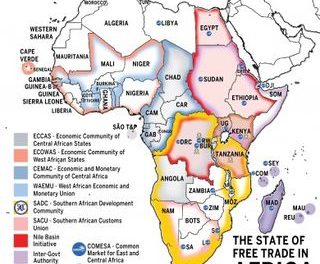
Offbeat 12 January 2017
What does the future hold? Lots of trolling and negativity, given the prevalence of social media. Yet there is more to it. The smaller dystopia is close to a franchise for discontent.
OK. So, here’s the story so far. Humanity is bursting out the rafters with overpopulation. There isn’t enough food or water to go around. The globe is heating up to the point where nature that everyone depends on is dying off in a really big way. There’s a major war in the Middle East in which all sides seem to be more intent on attacking civilians than one another. And now Eurasia and the so-called West are hurling threats at one another.
Welcome to 2017. Welcome to the global dystopia.
For those of you who aren’t in the genre fiction loop, a dystopia is a ‘community or society that is undesirable or frightening’, according to a couple of online dictionaries. Mostly the word has arisen in genre fiction when vast numbers of writers have tried to lump themselves together in a defining way that makes it easy for people to decide if they want to read that particular sort of gloom, without having to spend time defining what they are reading.
The typical themes are fascism, control of society, environmental catastrophe, dangerous economics and poverty, racism, sexism, rigid class distinction, meritocracy, technocracy, religion and all of the usual stuff that you see in the news, only with the thin veneer of fiction. As one witty bookshop sign put it, “Our dystopian section has now been placed under current events.”
Are you having fun yet?
The important thing about dystopian fiction is that the protagonist doesn’t feel secure and cannot relate to the world around him or her. Think about the fly in the ointment. Our protagonist, the fly, spoils the ointment. But also bear in mind that the ointment spoils life for the fly.
The mismatch of people and the world around them is an interesting, if scary, place to play. Everyone has some degree of mismatch. In order to achieve a desired result with reduced risks, individuals form and associate with groups. However association with the group leads to the imposition of the requirements of the group on the individual. When the group that has imposed the requirement does not achieve the results but continues to enforce the requirements, the individual experiences a dystopia.
Currently, by virtue of global mass media and social networks, individuals have found it easy to associate with a global ambition. Although it is not possible to participate politically in national politics, each component country contributes to global hopes. Now that is falling apart. If you question that, take a look at recent global news, and correlate that to local reaction on social media.
Faced with this, however, the individual has to realise that there is limited recourse for impact or satisfaction and probably, given some semblance of sanity, abandon interest in the ideal or ambition to limit further frustration and disappointment. Consider, for instance, the dieback of the global Occupy, 99% and Anonymous movements in popular consciousness. However the ideal, want or need will remain unresolved.
The sensible retreat is to narrow the focus to localized expectation, for instance, don’t rail at global racism, rather focus sensibly on local equity or, more commonly, just troll with the same worn social media junk.
Where the focus narrows to a localized area or smaller field of interest, the same challenge remains: the individual needs to maximize his or her own gains in the face of the group. In other words, there will be friction, and the conditions for a dystopia will arise again.
What does the future hold? Lots of trolling and negativity, given the prevalence of social media. Yet there is more to it. The smaller dystopia is close to a franchise for discontent. Anyone can join. A relatively small number of Salafists is worrying to Germany. And there are other, smaller movements that can inflict mayhem.
With each franchise opportunity for a dystopia, the factor for destabilization increases. So in the absence of a single dystopia, we have to expect fragmented discontent and chaos. And the problems will be localized, and more effective on a local basis.
Expect interesting times, just closer to home.












































